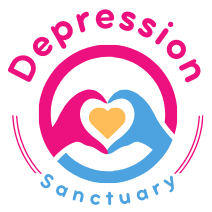There is a growing body of evidence that suggests that exercise may be an effective treatment for depression. Most recently, the British Journal of Sports Medicine reported that exercise helps severe depression and can be just as good a treatment as medication or therapy.
The meta-analysis included data from 41 studies and included 2,265 people with depression.
The authors found that any kind of exercise helps severe depression, but some types helped more than others.
The best results occurred with moderate exercise activities, like walking. More vigorous exercises like weight training and cardio were almost as good and even light exercise activities like gardening helped.
The lead author of the study, Andreas Heissel, explained to The Washington Post that it was not necessary to do anything too strenuous in order to experience benefits. “Something is better than nothing,” he said.
Heissel and his team hope that these findings will trigger the medical community to begin prescribing exercise to treat depression.
Currently, antidepressants and psychotherapy are the frontline treatments for depression. The World Health Organization recommends exercise as an add-on therapy only. The American Psychological Association does not include exercise in its clinical practice guidelines.
How exercise helps severe depression
Research tells us that there are a few ways in which exercise can help alleviate symptoms of depression. Evidence suggests that it:
- Releases endorphins: Exercise helps release the body’s natural feel-good chemicals, called endorphins. These neurotransmitters interact with the receptors in the brain that reduce the perception of pain and boost mood.
- Reduces inflammation: Depression has been linked to inflammation in the brain. Exercise reduces inflammation and promotes the growth of new brain cells, especially in the hippocampus, which is important for learning and memory.
- Boosts self-confidence: Regular exercise can make you feel better about your body and your abilities, which can boost your self-esteem and confidence. This can be especially helpful for individuals struggling with body image issues that may contribute to depression.
- Provides a sense of accomplishment: Exercise can give a sense of accomplishment, which can help counter negative self-talk and feelings of worthlessness that often accompany depression. It is important to note that exercise should not replace traditional treatments for depression, but can be used as an effective adjunct treatment.
- Provides Social Support: Exercise can be a social activity and provide an opportunity to connect with others who share similar interests. Joining a gym or a sports team, for example, can offer an opportunity to meet new people and build social support.
- Improves Sleep: Regular physical activity has been shown to improve the quality and length of sleep. Sleep is important in regulating mood and managing symptoms of depression.
- Increases Brain Function: Exercise has been shown to improve cognitive function and may also help counteract brain damage caused by depression. Exercise can increase blood flow and oxygen to the brain, which can reduce inflammation and promote brain health.
How to get started with exercise
Starting an exercise routine can be a challenge, especially when you are dealing with depression. However, there are several things you can do to help make exercise a regular part of your routine:
- Start Small: If you are new to exercise, start small and gradually work your way up. Try a 10-minute walk and gradually increase the duration and intensity of your workouts.
- Find an Activity You Enjoy: Choose an exercise that you enjoy, such as dancing, swimming, yoga, or cycling. This will make it easier to stick to your routine.
- Set Realistic Goals: Set realistic goals for yourself, such as exercising for 30 minutes three times a week. Reward yourself when you reach your goals.
- Make Exercise a Part of Your Routine: Schedule your exercise routine at a regular time each day, such as early in the morning or in the evening. This will help make it a part of your regular schedule.
- Seek Support: Consider joining a support group or working with a personal trainer or coach to help keep you motivated and accountable.
Overall, exercise can be an effective and natural way to manage symptoms of depression. But it is important to consult with a healthcare professional before starting any exercise program.
Photo by Dominika Roseclay
Annie Ingalls is a pseudonym for all articles published on this site that have been at least partially generated using AI. All articles are fact-checked by Nancy Schimelpfening, M.S., and edited as needed. Some supplemental content written by Nancy may be included, as well. Additionally, each article is run through a plagiarism checker to ensure that we are not inadvertently violating anyone’s copyright. If you feel that the AI bot has copied your work in any way, please contact us at contactus@depressionsanctuary.org and we will remove it right away.

